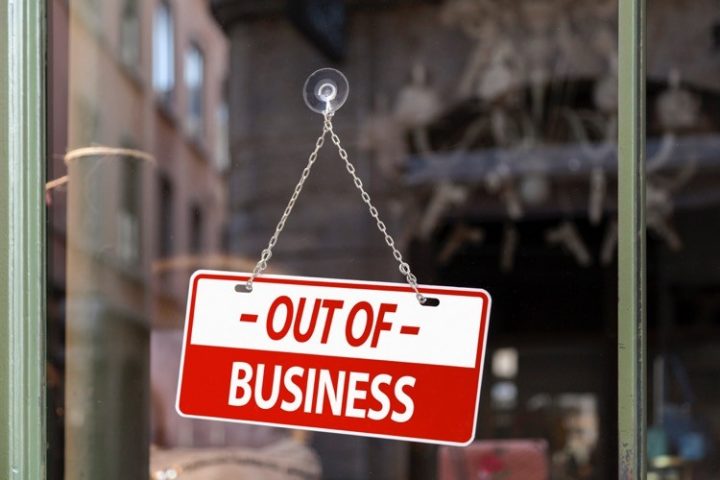
On November 14, Washington Governor Jay Inslee released another round of mandates to “control” the spread of COVID-19, and for many businesses, it was the last straw. Numerous companies, faced with another round of severe restrictions, are calling it quits. One such establishment is Players and Spectators, a restaurant and entertainment venue featuring a bowling center, electronic arcade, cocktail lounge, pool tables, and an event center. A longtime Spokane Valley fixture, it announced November 15 on Facebook that it was closing, saying:
We would like to thank everyone that has continued to support us during these crazy times. Unfortunately, due to the Governor’s newest mandates, we are forced to close our doors again, however this time — permanently. Thank you for the many fun years, Spokane!
Players and Spectators joins a growing number of Spokane-area businesses closing due to mandates from Governor Inslee. They include Mackenzie River Pizza, Rocky Rococo, Grill & Pub in North Spokane, River Rock Taphouse, Cheap Shots, Sapphire Lounge, Party Palace, and Tomato Street in River Park Square.
Every one of those businesses opened because someone with ambition had a dream to serve the public, create jobs, and make a reasonable living. Now, many of them will face economic loss, their employees will no longer have jobs to provide for their families, and area residents lose a place to get together with friends and family for food and fellowship. Nationwide, these dreams are being crushed as Democratic governors continue to destroy the economy in the name of fighting COVID-19.
In September, Yelp released its Local Economic Impact Report on the effects of the coronavirus mandates on small businesses:
The last Yelp Economic Average showed a decreasing number of overall closures, 132,580 in total. As of August 31, 163,735 total U.S. businesses on Yelp have closed since the beginning of the pandemic (observed as March 1), a 23% increase since July 10. In the wake of COVID-19 cases increasing and local restrictions continuing to change in many states, we’re seeing both permanent and temporary closures rise across the nation, with 60% of those closed businesses not reopening (97,966 permanently closed).
Although some business sectors are not showing a severe downturn yet, it is doubtful that they will survive unscathed as business closures continue to increase nationally. Yet even as the mom-and-pop shops close across the nation, the stock market is hitting new highs, revealing another disconnect between Big Government-connected Wall Street and Main Street.
Other economic indicators are hitting lofty levels as well, in a bad way. 11.1 million Americans are unemployed, 2.7 million homeowners are in forbearance plans according to a recent Mortgage Bankers Association’s (MBA) Forbearance and Call Volume Survey, and millions of Americans are now relying on food banks to feed their families.
In Dallas, Texas, on November 14, thousands of people lined up for what North Texas Food Bank’s organizers called its “largest mobile food distribution ever.”
Organizers said the NTFB gave away over 7,000 turkeys and around 600,000 pounds of food in Fair Park to those families in need as the holidays approach and the COVID-19 pandemic continues.
Saturday’s event was also the NTFB’s fifth food giveaway in Fair Park since the pandemic began in March….
Organizers said the food given away on Saturday was enough to feed about 25,000 people.
In late October, an article ran in the New York Times stating:
As the pandemic settled into the city, hunger drove tens of thousands of New Yorkers into another type of line — food pantry lines, many for the first time. An estimated 1.5 million people cannot afford food.
City Harvest, one of the largest emergency food distributors in New York, recorded nearly 12 million visits to the pantries in its network from March through August — about three million more than in the same period last year.
Bronx Works, a nonprofit group that provides support services to individuals and families, served just under 500 people each month before the pandemic. It now serves nearly 4,000 per month.
In western Massachusetts, food insecurity is surging:
One in six people, and one in four children, in western Massachusetts, are expected to struggle to obtain food by the end of this year, according to Feeding America, the national network of food banks. This will put more pressure on the network of about 50 local food pantries and meal sites serviced by The Food Bank of Western Massachusetts.
“I thought I had seen the worse during the Great Recession, but what we have experienced since March due to COVID-19 has really overwhelmed us,” said Andrew Morehouse, the Food Bank’s Executive Director.
He said the data coming from the sites that are part of the emergency food network confirm a steady rise in demand after an initial spike last spring that subsided during the summer.
In September, the most recent month with complete data, almost 114,000 people sought food assistance in western Massachusetts, with 18 percent reporting it was the first time going to a food site for help, according to the Food Bank.
And the Oregon Food Bank says:
New projections reveal that … food insecurity remains drastically higher than pre-pandemic levels…. While the latest data paints a slightly more positive outlook, food insecurity rose by more than 35% — bringing food insecurity to the doorsteps of more than 720,000 of our neighbors across Oregon and Southwest Washington.
With this latest round of state lockdowns already starting across the country, there is no way to know how many more businesses will close. Should Biden make it into office, he and his handlers are openly talking about a nationwide lockdown for four to six weeks early next year.
As more and more businesses close down, how many people will want to step up and take the risk of opening new businesses in this environment of lockdown fever? With the ascension of a Biden administration in January, the situation would more than likely get much worse. Unless everyday Americans take back the reins of government from the would-be totalitarians, we may well have seen the end of the American dream.



